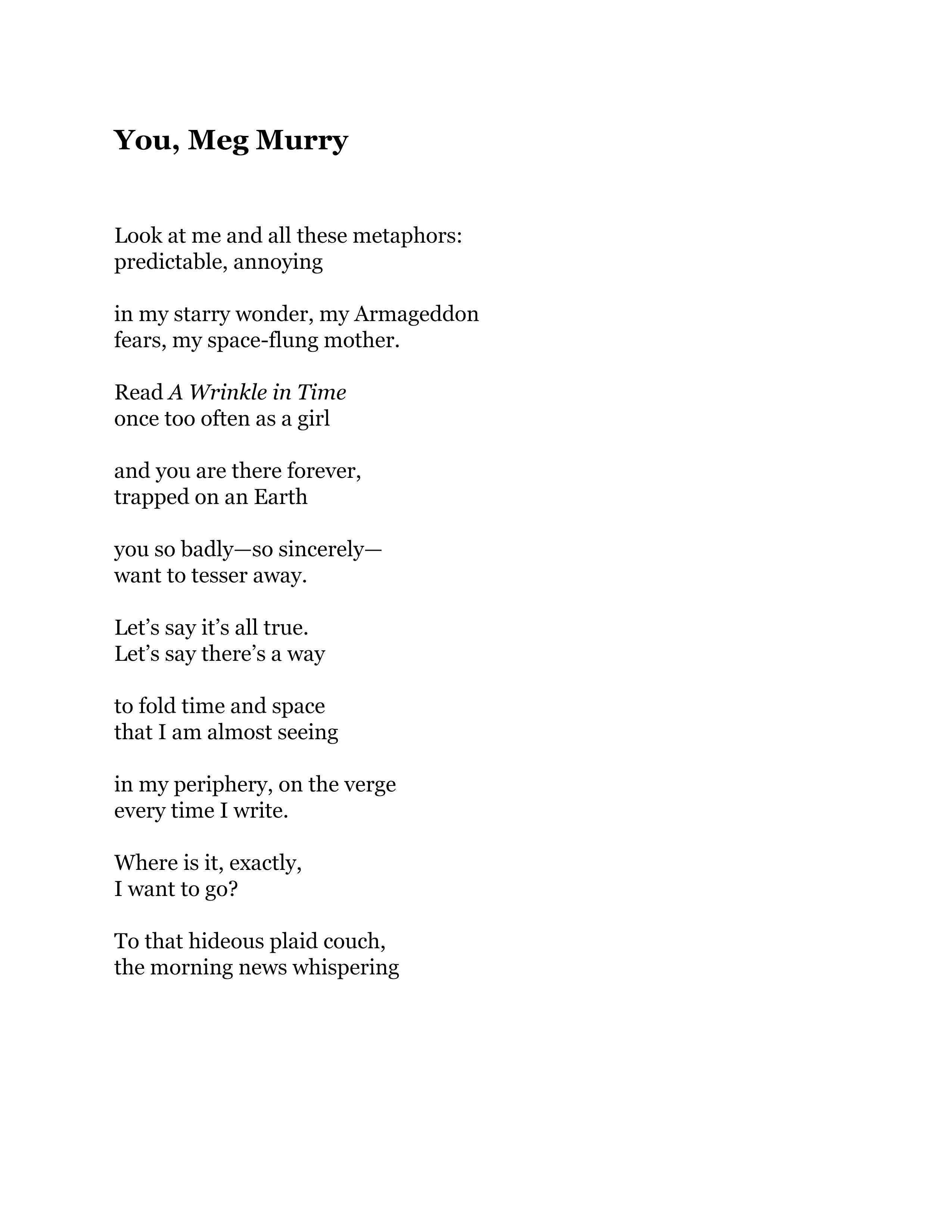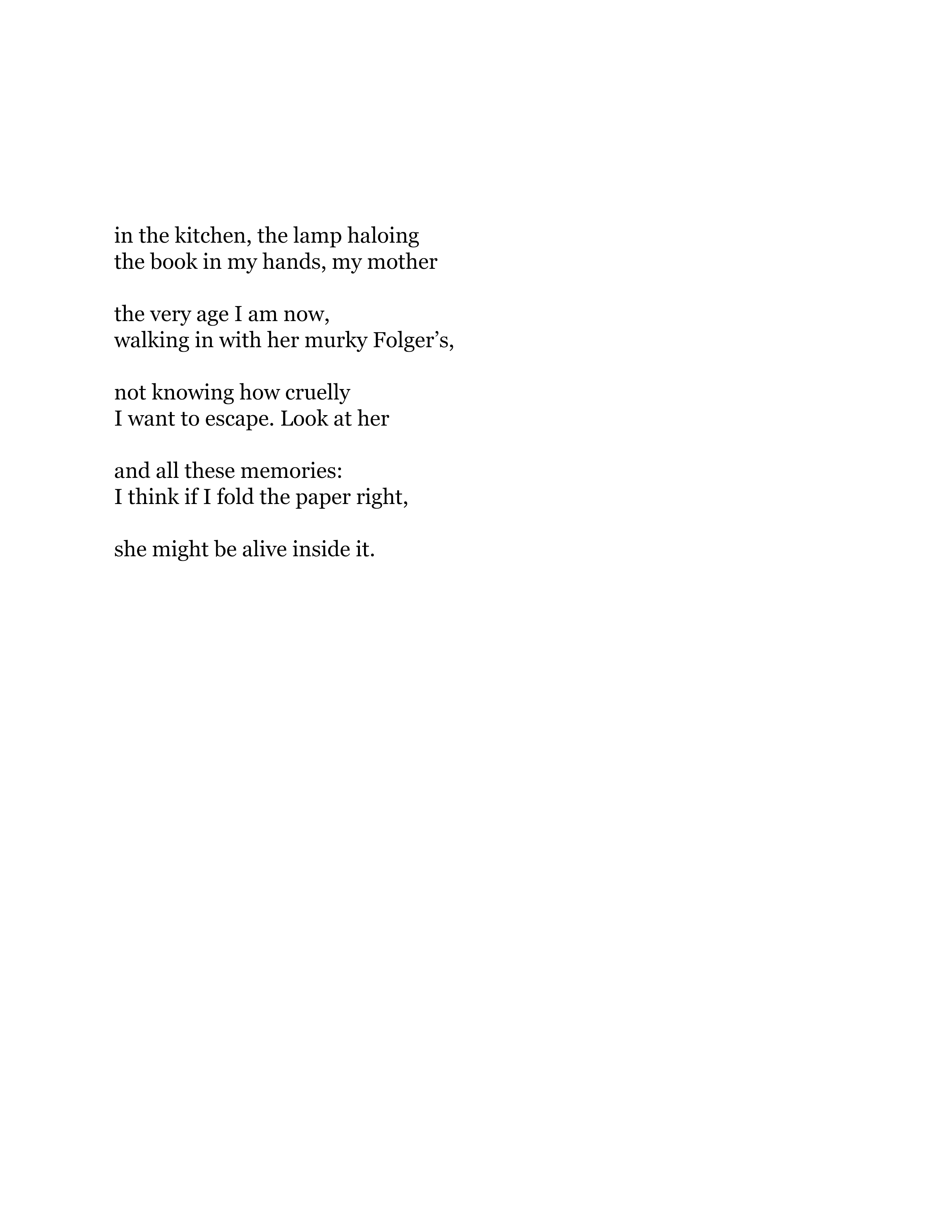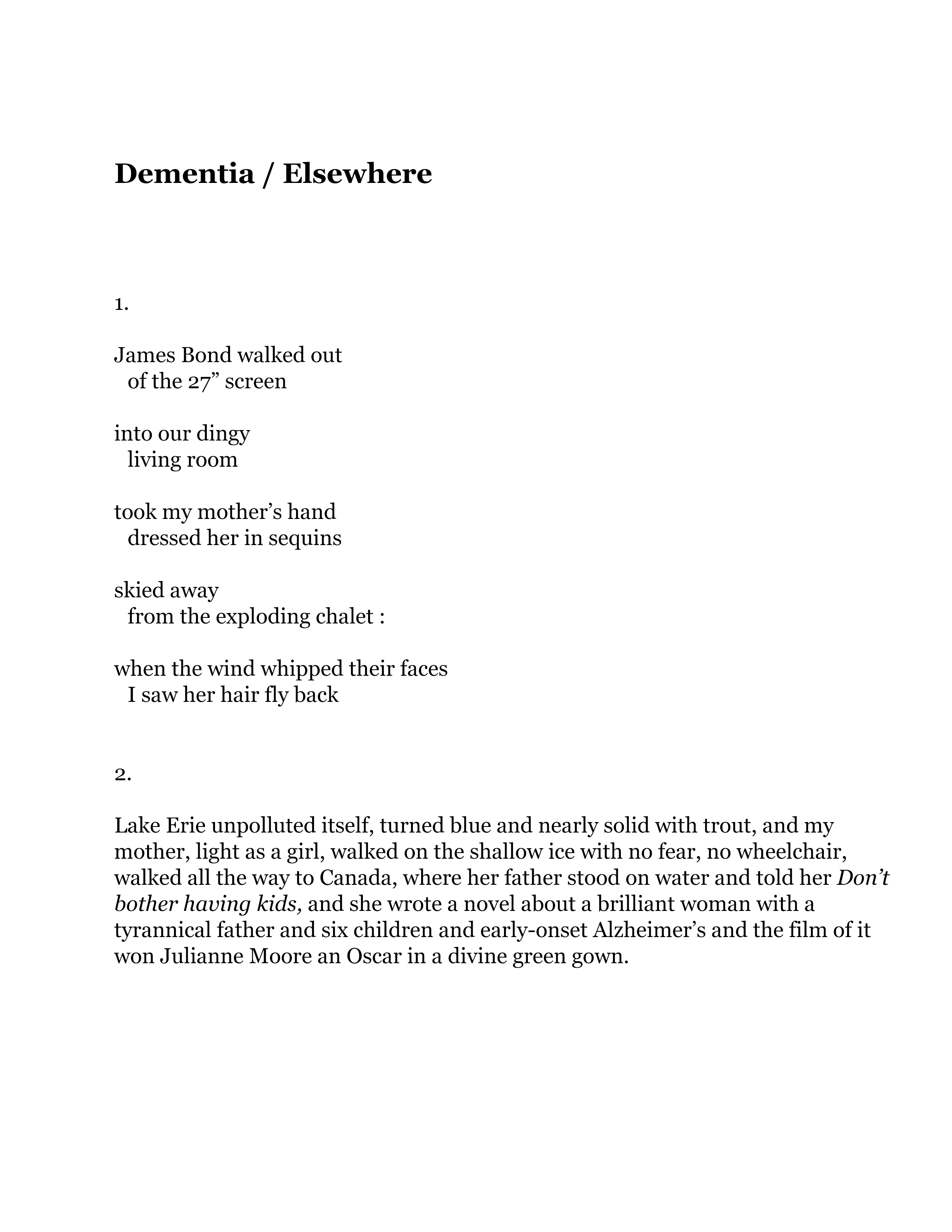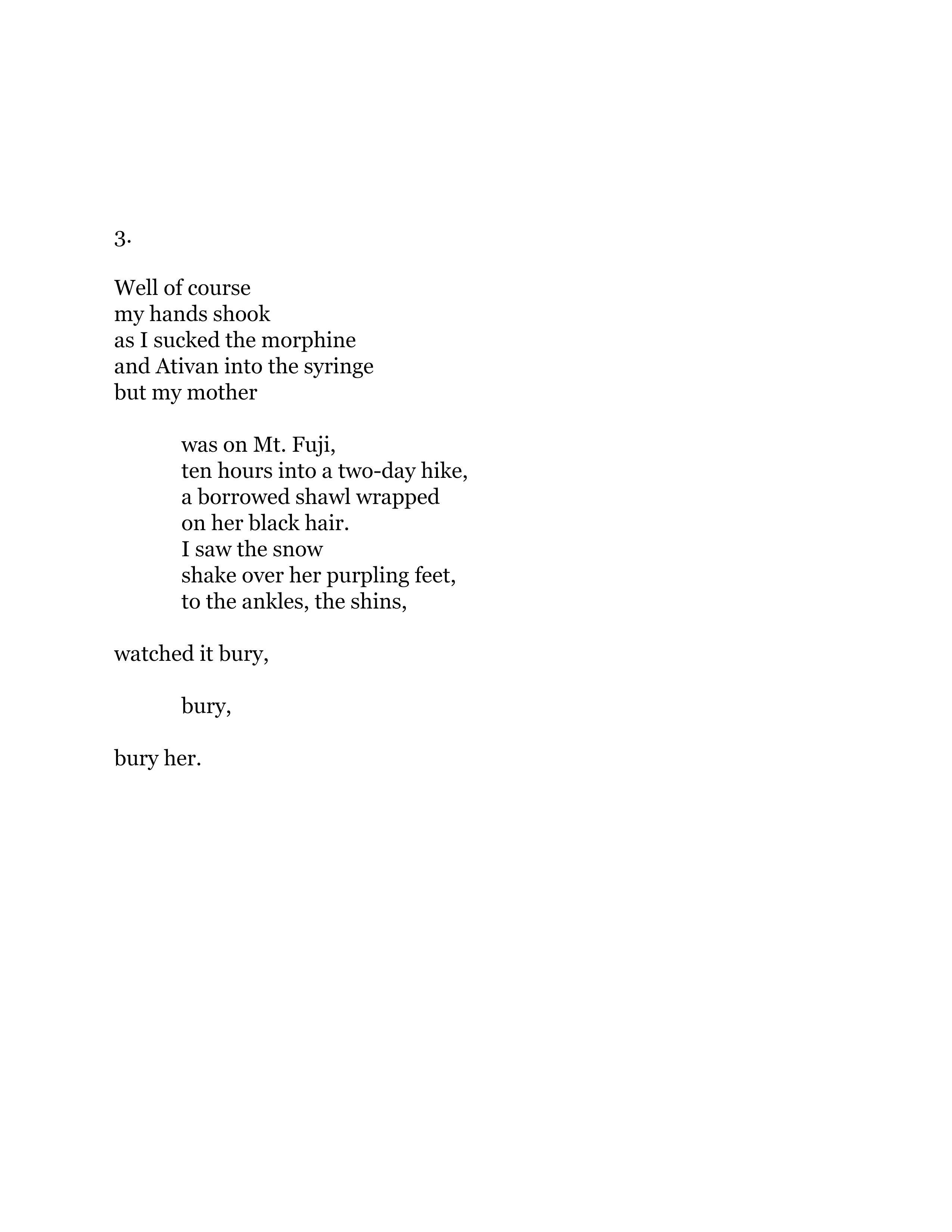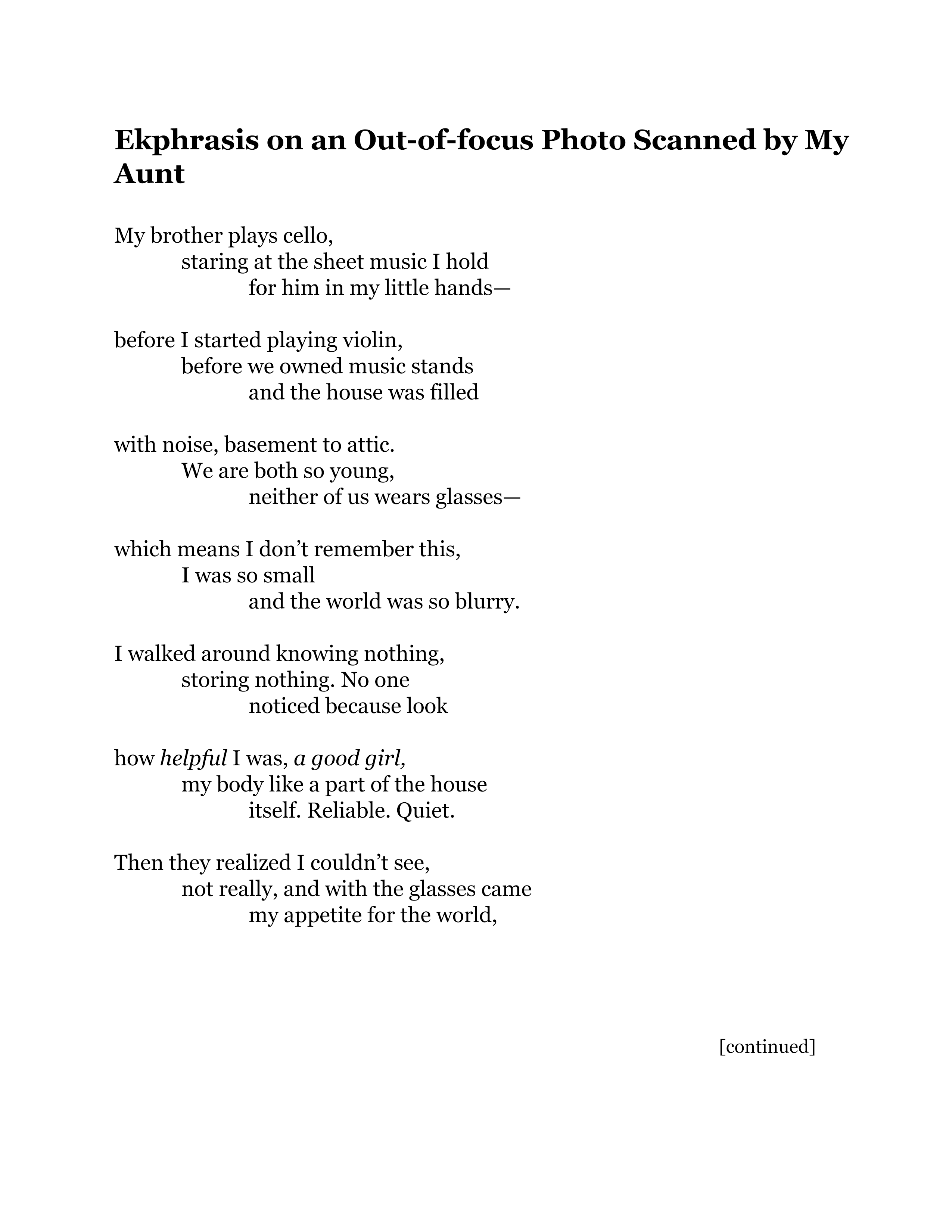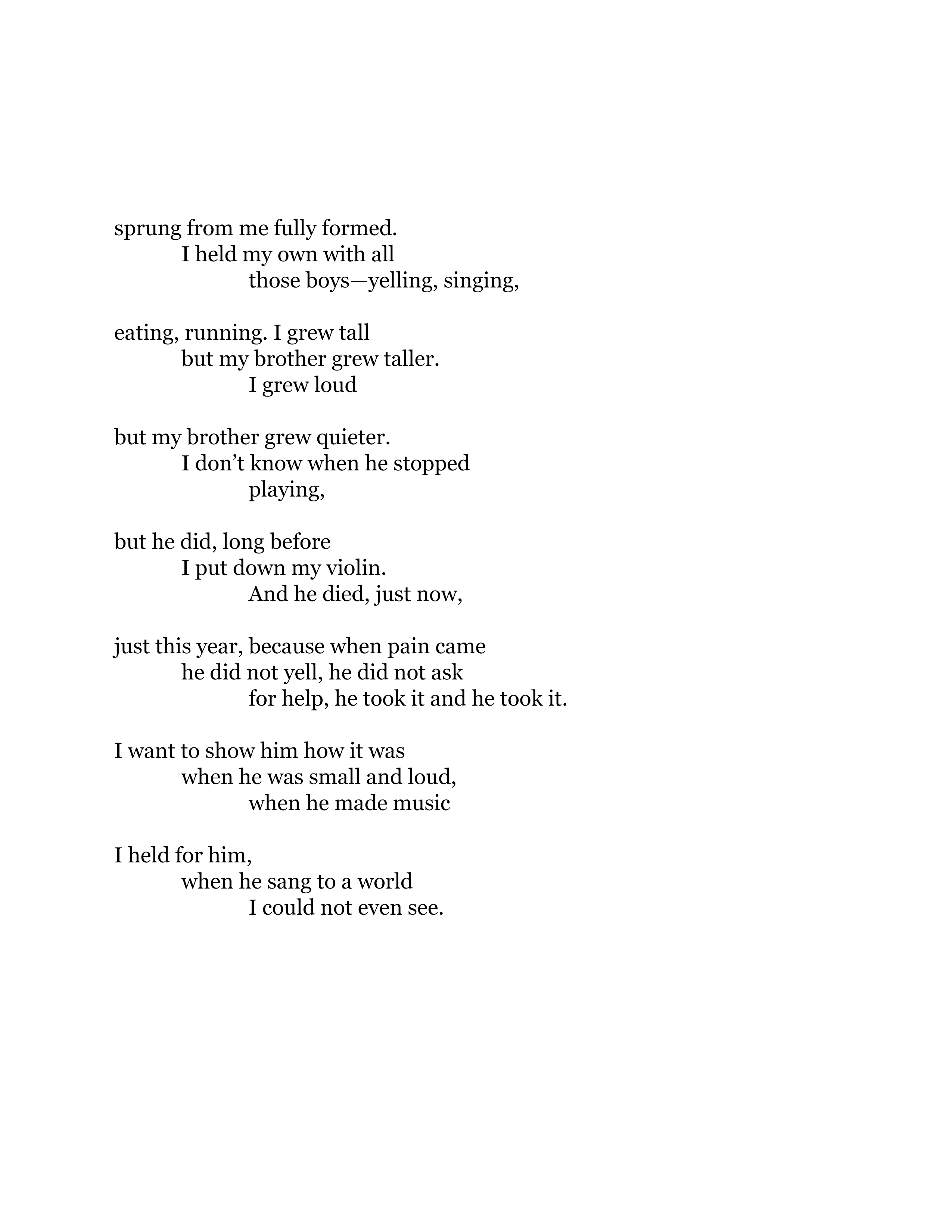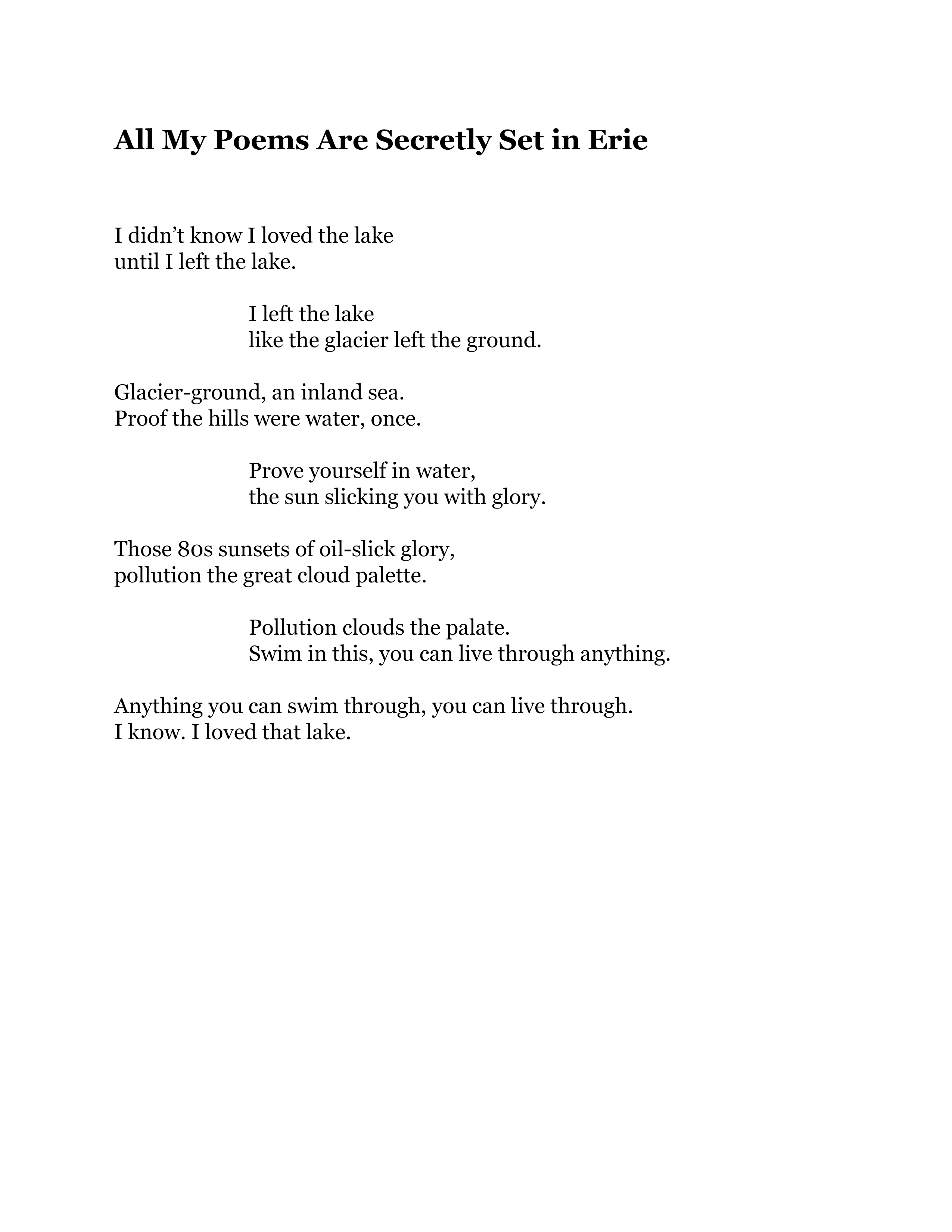4 poems by Laura Passin
1 essay by Antonio Addessi,
on the poems of Laura Passin
The poem You, Meg Murry is a testimony to the modern human experience. The poet speaks of film and literature, of a particular time and no time at all in both their life and ours. They ground us in sensory memories—the fabric of the couch, the mother’s coffee. They see their mother then and the last time they saw her. Seamlessly. Through the worm hole. And they ask “where is it exactly, I want to go?” This beautiful stanza reveals a poem that cannot see itself—the poem is the child is the reader is Meg Murry.
It is a dog ear—a bookmark—a worm hole to the past that we take with the poet each and every time we read it. It doesn’t change but we do. Each time we read it we get a little older, we get a little wiser, we learn the language. We begin to speak it and to be comfortable in it. 1998 feels closer. We can taste it in the murky Folger’s, we can see it in the not-so-ugly couch, we can feel it in the desperate want to escape to anywhere but here. And as we read and age and learn we see the cruelty in that desire to tesser, dissipate. It is not cruel to escape. It is needed, required for existence. Even for a moment, even if it’s only for twenty-nine lines.
You, Meg Murry walked so Dementia / Elsewhere could run. And run it does. We have learned the language and we are familiar with the setting. The poet does not hesitate to take our hand, dress us in sequins and ski us away; an adventure through their lived experience, through their fantastical imagination and through their bottomless emotions. We see aging and illness begin to leech into our world creating an alternate reality under our noses. It feels as if our parents are the only ones aging in front of our eyes. We take on roles we only ever see on TV or hear about through friends of friends. We become nurses and shamans—we are the caretakers and undertakers. The lines blur, the color fades and the sequins begin to unravel.
Act Three. “...with glasses came my appetite for the world, sprung from me fully formed.” In Ekphrasis on an Out-of-focus Photo Scanned by My Aunt the lens is fully open. A panorama, a long exposure, a poet exposed on stage—the poet a conductor, the brother a soloist, each pulling long strokes, playing their best performance in an anechoic chamber. We the readers can hear the pulse, the blood cells rushing through our eardrums—the neurons firing. It is frighteningly lonely yet riveting; a car crash we cannot take our eyes off of. We see what is coming in a tragic crescendo like the Wiley Coyote trying to run back to the safety of the cliff. With the loss of both the mother and the brother the poet seems to echo back to the girl on the ugly plaid couch, “where is it exactly, I want to go?”
Lake Erie. The poet leaves us where we have been this entire experience—treading water, back on Earth, behind our glasses and in the present. All My Poems Are Secretly Set in Erie throws us overboard in a familiar although polluted reality that none of us chose but all of us have swam in our entire existence. “Swim in this, you can live through anything.” The past cannot be changed but it can be displayed in all of its multifaceted beauty through the ekphrastic. It can heal us with its nostalgia and keep us humble through its heartbreaking truth slicking you with glory.

